Abandoned and empty buildings are increasingly common sights in Britain's cities and towns, and have proven irresistible to people with a particular mindset.
This is what happens to them, along with extra information from a legal perspective.

Image by Jim Roberts
People who explore and (often) document these abandoned places are known as 'urban explorers', and highlight one of the most obvious things that happens to abandoned buildings.

They decay.
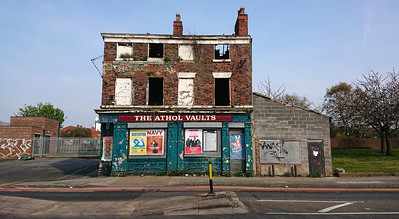
Image by SociétéRoyale
This makes empty buildings extremely dangerous to explore, which is why it wouldn't be recommended even if it wasn't unlawful.

Image by Alan Dugan
Entering an 'abandoned' building is usually still unlawful, because the land is almost invariably still owned by someone.
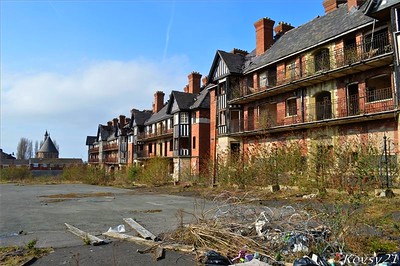
Image by Kev Thomas
Entering a building which is owned by someone is trespass, and is usually a civil offence. Contrary to those famous signs, trespassers cannot typically be prosecuted – at least not for trespass alone.
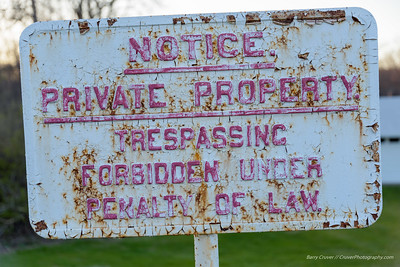
Image by Barry Cruver
A trespasser might be sued, but this is usually too much effort to be worthwhile. A landlord may give permission to enter, but unless permanent public access is granted they can recant this permission at any time. A landlord is unlikely to give this permission, as if they gave explicit permission to explore a dangerous abandoned place and someone got hurt, they could find themselves liable.

Image by Patrick Milan
Risks are many, and include asbestos, falling masonry, sharp objects and unsteady floors.
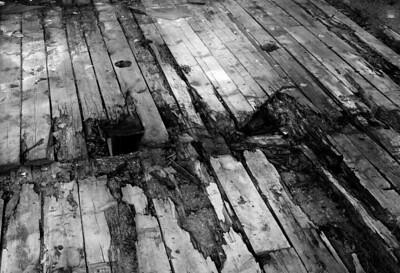
Image by Fabian
For this reason, to prevent the risk of people trespassing and then suing the landlord when they get hurt, security guards may well be patrolling empty buildings.

Image by Peter Castleton
In reality, the risk to the land owner is quite low:
“I think it will be extremely rare for an occupier of land to be under a duty to prevent people from taking risks which are inherent in the activities they freely choose to undertake upon the land. If people want to climb mountains, go hang gliding or swim or dive in ponds or lakes, that is their affair. Of course the landowner [may] for his own reasons wish to prohibit such activities. He may think that they are a danger or an inconvenience to himself or others. Or he may take a paternalist view and prefer people not to undertake risky activities on his land. He is entitled to impose such conditions, as the Council did by prohibiting swimming. But the law does not require him to do so”
Lord Hoffman in Tomlinson v Congleton Borough Council, 2003

Image by Gustav
It's still possible that they could end up being sued after trespass, for various reasons, but usually these reasons would involve holding items on-site that shouldn't be there in the first place.
A more likely concern is that something of value will be damaged, or that arsonists and vandals will target the building, or that something of value will be stolen.
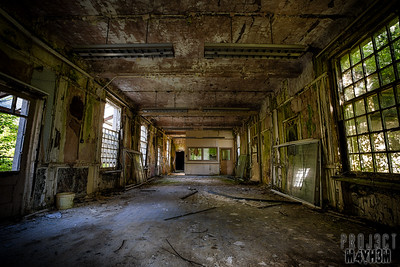
Image by Proj3ctm4yh3m
Some urban explorers are ideologically driven, but some simply want to take pictures. In any case, if an urban explorer 'goes equipped', damages, steals, or breaks into an abandoned property they will be guilty of aggravated trespass at the least, and probably burglary as well.

Image by Proj3ctm4yh3m
When urban explorers are ideologically driven, they often have ties to either anarchist or anarcho-capitalist/libertarian ideologies. Which of the two they are should theoretically have substantial implications for how far they will respect property rights, but in practice it is extremely rare for someone who identifies as an urban explorer to show disrespect for a property they are exploring.

Photo by Insurgent Photography
Squatters more commonly skew towards anarchist philosophies, as libertarian and anarcho-capitalist philosophies emphasise the rights of the property owner. They are notorious, but they don't really apply to all that many buildings.
- Squatters cannot legally squat in residential buildings.
- Squatting in non-residential buildings, however, is not a crime.
- It's extremely unlikely, however, that the squatters will manage to remain in a building for ten years against a land-owner's will.
- If a squatter causes damage while entering or in the property, uses utilities such as water electricity or gas without permission, steals from the property, fly-tips, or commits any other crime the police can intervene.
- In addition, any squatters can be removed with an interim possession order (IPO) and application for possession. This application must be made within 28 days of finding out about the squatters. With all these limitations, it's obviously extremely difficult to remain in a property for ten years and claim squatter's rights.
- If caught trespassing, the trespasser must leave the property by the shortest available route. Failure to do so could result in Breach of the Peace, and criminal charges.
- Your council can be notified of abandoned or derelict structures, and will be especially interested if the structure represents a danger to members of the public.
- You can also find empty properties to purchase using this great guide from the BBC. Obviously any property will be, at best, a fixer-upper, but if the property is problematic enough it could end up being cheaper than the land it's on.
The Community Right to Reclaim Land means that if a lot is owned by a public body and is under-used, vacant, and there are no plans to bring it back into use, you can request that the land-owner disposes of it. This will usually mean the land is sold on the open market, freeing it up for the community to make better use of it. You can read more about the Community Right to Reclaim Land on the government's site.
What happens to empty buildings is interesting from a planning law perspective because they are often subject to various kinds of conflict. Developers want to knock them down; conservationists want to maintain or rebuild; local residents just want something done with them. This all makes for some interesting planning cases.
Have a question about abandoned buildings as they relate to planning law? Feel free to ask us a free legal question using the sidebar on the right!
